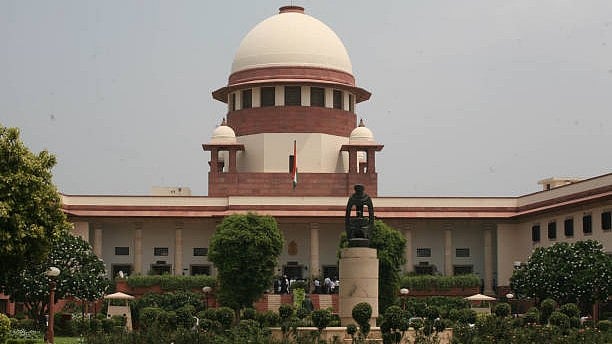
Supreme Court
Credit: iStock Photo
New Delhi: Tamil Nadu has filed a writ petition in the Supreme Court challenging the Governor's decision reserving the Kalaignar University Bill 2025 to the President, instead of giving assent to it as advised by the state council of ministers.
The bill aimed to establish a university in Kumbakonam named after former Chief Minister M Karunanidhi, by bifurcating Bharathidasan University, which will cater to the higher education needs of students in four districts Ariyalur, Nagapattinam, Thanjavur, and Tiruvarur.
The proposed varsity sought to make Chief Minister as its chancellor. The President may either give assent to the bill or withhold it or may return it for reconsideration by the assembly.
In its plea settled by senior advocate P Wilson and filed through Misha Rohatgi Mohta, the state contended that the decision by the Governor was illegal, patently unconstitutional for being violative of Articles 163(1) and 200 of the Constitution.
The state sought a direction from the court to call for the records pertaining to the letter of July 14, 2025 and to quash the same as arbitrary, illegal, malafide exercise of power and unconstitutional.
It also asked the court to issue an order for return of the Kalaignar University Bill, 2025 and placing it before the Governor for considering the same as per Article 200 in accordance with the aid and advice of the Council of Ministers as contained in the note for circulation on May 02, 2025.
In April, 2025, a two-judge bench had invoked the power under Article 142 of the Constitution, to declare the deeming of assent to the ten bills passed by the Tamil Nadu Assembly and kept pending by the Governor. It had fixed three months timeline to clear the bills.
Subsequently in May, this year, a President reference was made, invoking powers under Article 143(1) to know from the top court whether timelines could be imposed by judicial orders for the exercise of discretion by the president while dealing with the bills passed by state assemblies. The five-judge had reserved its opinion in the matter.
